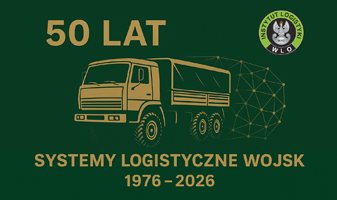ORIGINAL PAPER
Food supply for the Home Army for the duration of the warsaw uprising
1
Wojskowa Akademia Techniczna, Wydziału Bezpieczeństwa, Logistyki i Zarządzania, Instytut Organizacji i Zarządzania, Polska
A - Research concept and design; B - Collection and/or assembly of data; C - Data analysis and interpretation; D - Writing the article; E - Critical revision of the article; F - Final approval of article
Submission date: 2021-10-05
Acceptance date: 2021-12-31
Publication date: 2021-12-31
Corresponding author
Grzegorz Jakub Jasiński
Instytut Organizacji i Zarządzania Wydziału Bezpieczeństwa, Logistyki i Zarządzania, Wojskowa Akademia Techniczna, Kaliskiego 2, 00-908, Warszawa, Polska
Instytut Organizacji i Zarządzania Wydziału Bezpieczeństwa, Logistyki i Zarządzania, Wojskowa Akademia Techniczna, Kaliskiego 2, 00-908, Warszawa, Polska
SLW 2021;55(2):121-136
KEYWORDS
TOPICS
ABSTRACT
The literature on the Warsaw Uprising is extensive. It concerns its various aspects, ranging from strategic and operational issues, political problems, internal and international conditions, analysis of military actions during the uprising, reaction to the uprising, through the extermination of the population and insurgents, to the destruction of the city. Despite such abundance, the literature on the Uprising contains many gaps and discrepancies, and numerous issues are still waiting for more extensive research and elaboration.
Using archival material, including documents from archives in New York, London, Freiburg and Poland, as well as existing literature on the subject, the author presents previously unknown issues related to the supply of AK’s units with food and water during the Warsaw Uprising. He describes the state of preparations and problems that occurred. He also claims that the Home Army was insufficiently supplied with food during the fights which had a significant impact on the development of events in Warsaw in the summer of 1944.
In the article, the author proves that the provision of insurgent units with food and water had a very bad impact on morale, but, more importantly, on the ability to perform military operations within individual parts of Warsaw. He thoroughly describes the lack of commissariat’s preparation during the occupation, as well as attempts to handle this issue before the fights commenced by the AK’s Warsaw Area quartermaster, and indicates why they were destined to fail, at least partially. The state of preparation was became known not only through the first days of fighting, but rather during the following weeks of struggle in Warsaw. The noticeable chaos in the supply of food and water resulted from many factors, including the assumption made on the duration of the fights, as well as preparedness for battling under occupation, which resulted in keeping planning secret at a high degree, which led to discrepancies in the guidelines issued by the Home Army’s Headquarters and the Home Army’s Warsaw Area.
We process personal data collected when visiting the website. The function of obtaining information about users and their behavior is carried out by voluntarily entered information in forms and saving cookies in end devices. Data, including cookies, are used to provide services, improve the user experience and to analyze the traffic in accordance with the Privacy policy. Data are also collected and processed by Google Analytics tool (more).
You can change cookies settings in your browser. Restricted use of cookies in the browser configuration may affect some functionalities of the website.
You can change cookies settings in your browser. Restricted use of cookies in the browser configuration may affect some functionalities of the website.


